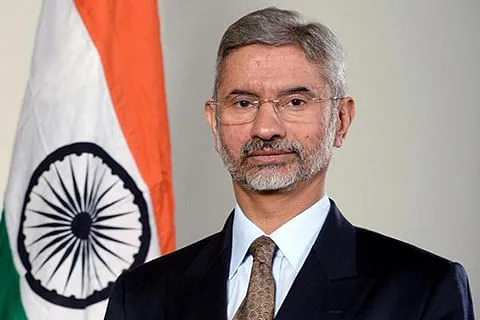K S Tomar
kstomar7@gmail.com
Keeping in view the international ramifications and fallout of Afghanistan imbroglio, Prime Minister Narener Modi has been monitoring the turmoil in Kabul; hence India may adopt ‘Wait and Watch Policy’ prior to taking final decision about recognition of Taliban regime which will be in consonance with the thinking of international community including United states, European Union etc; all are showing no haste to jump to any conclusion.
Keeping in view Taliban’s announcement to give amnesty to all, favouring no external and internal enemies, protection and involvement of women in new regime coupled with US President, Joe Biden’s key proposals to have a multilateral conference of six nations to start peace process, a climb down from earlier stand, India is keeping a close watch on fast developments in Kabul though Modi has made it known to the world that terror regime can not last long.
As per external affairs ministry, a quick assessment was done by the Indian side about a request from Taliban to have diplomatic presence in Afghanistan and it was concluded that such development could not be taken at face value hence action plan of the evacuation of the Indian diplomats and others was being executed as planned. Officials said that a senior Taliban leader, Sher Mohammed Abbas Stanekzai had reached out to the Indian side with a surprise request which had been conveyed informally and indirectly by the Taliban leader, who is part of the leadership of the group’s political office at Doha, but it was not relied upon.
India Watches
Analysts believe that India has taken a realistic stand so far and several factors have dictated its current change in diplomatic move.
First, the Taliban’s sudden takeover of Afghanistan may cause a significant shift in the geopolitics of South Asia which will be a testing period for India and it emanates from our historically tense relations and border disputes with Pakistan and China.
Second, one of the biggest challenges of India pertains to a dilemma whether to recognize the Taliban government or not? As per indications, China and Pakistan seem to be poised to acknowledge the Taliban government in some form which will put India in a fix. India’s best option at the moment seems to be keeping channels of communication open, which were earlier put in place.
According to Amlendu Misra, a professor of politics at Lancaster University and the author of a book on Afghanistan there are limited options for Delhi which are in the category of either bad or worse.
Third, Pakistan is elated over the takeover of Kabul by Taliban and Prime Minister, Imran Khan met the political delegation led by former vice president Muhammad Younas Qanooni. Imran says that he is committed to support inclusive government in Kabul and even described fighters as common citizens and not terrorists, besides blaming the United States for creating a mess in Afghanistan which had offended Biden.
Fourth, due to a huge investment of about Rs 22,350 crore in various projects, education and social sector, India faces an unimaginable challenge of dealing with Taliban though they have praised these investments.
Fifth. thousands of refugees may throng to India and it may be extremely difficult to stop them on humanitarian grounds.
Sixth, Lashkar–e-Toiba and Jaish -e-Mohammed outfits are part of Taliban in current fight hence they may get a strong foothold to step
up violence in Kashmir which was witnessed in the early nineties.
Finally, Taliban have declared that Afghanistan will not be permitted for terrorist activities but India is worried over the possible spurt in violence in Kashmir, whenever new regime settles down in Kabul.
Improving the image
To avoid blunders of nineties, Taliban leadership’s spokesman Zabihullah Mujahid has asserted that “We don’t want any internal or external enemies and rights of women will be protected within the framework of Islam.” Taliban have already declared an “amnesty” across Afghanistan and urged women to join its government, trying to calm nerves across a tense capital city which witnessed chaos as thousands mobbed the city’s international airport in a desperate attempt to flee. But women and common Afghan people still do not believe the pronouncements of Taliban till they prove it.
Experts opine that Taliban will require international recognition to survive as the new regime will have to reconstruct the entire system which will be possible with the help of developed nations, and it will require a huge financial help from the IMF etc., which has put a freeze on the inflow of funds.
Analysts feel that due to a threat issued by 11 nations, including US, Britain, India, European Union etc. not to recognize the current forcible takeover of Kabul, the Taliban have opted for negotiated settlement and inclusive government. The recent formation of 12 member supreme council including former president Hamid Karzai, Addullah Abdullah, Abdul Ghani Baradar, Khali Haqqani, co founder of Taliban etc., to govern the nation has lessened the chances of bloodshed and direct confrontation with Afghan armed forces and common people who are opposed to them.
K S Tomar is a political analyst






